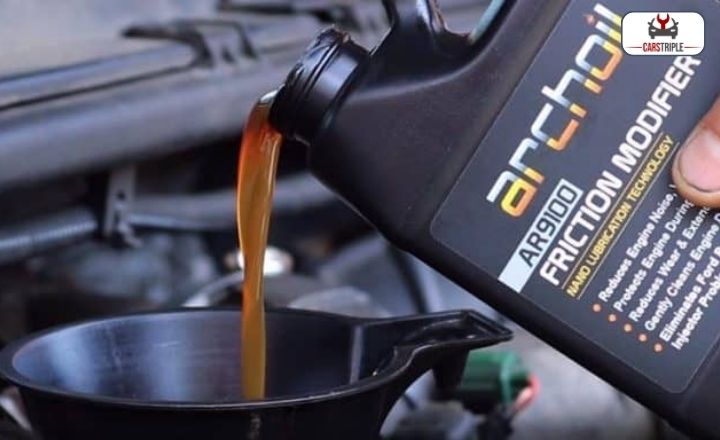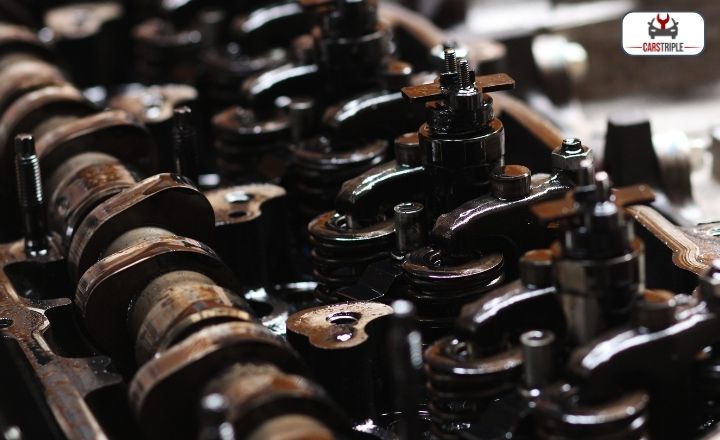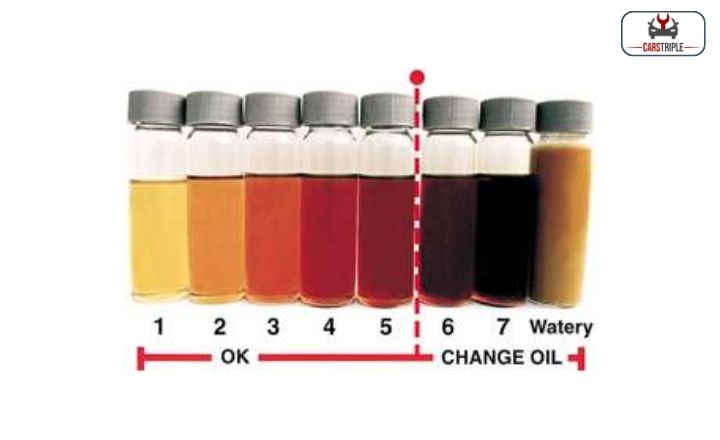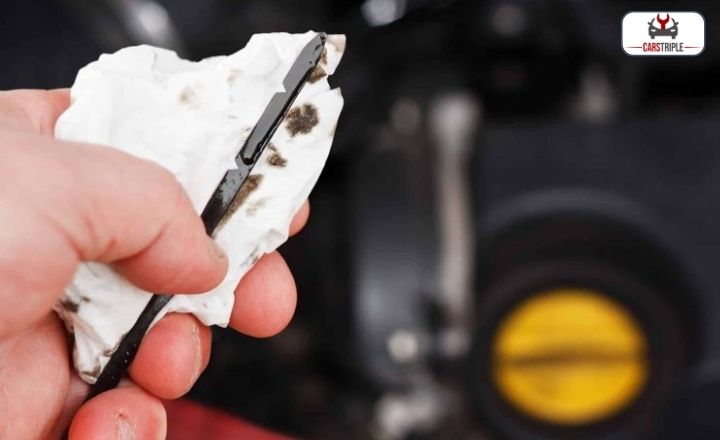Motor oil is an essential component in keeping our vehicles running smoothly. As responsible car owners, we often stash away extra bottles of motor oil for future use. As time goes by, doubts may arise about the longevity of this vital automotive lubricant. Does motor oil expire?
This question has puzzled many drivers and remains a topic of debate among experts. We will delve into the different aspects surrounding the potential expiration of motor oil, providing insights and shedding light on whether it truly has a motor oil shelf life.
If you are curious to know if that bottle of motor oil sitting in your garage is still good to go, keep reading to find out everything you need about its longevity and effectiveness.
What Is Motor Oil?
Motor oil is a lubricant that is specifically designed to be used in the internal combustion engines of vehicles. It plays a crucial role in keeping the engine running smoothly by reducing friction and wear between moving parts. Motor oil also helps to cool down the engine by dissipating heat generated during operation.
Different types of motor oils are available, including conventional, synthetic, and semi-synthetic oils. Traditional motor oil is derived from crude oil and undergoes refining processes to remove impurities. Synthetic motor oil, on the other hand, is chemically engineered and offers better performance and protection for high-performance engines. Semi-synthetic motor oil combines the benefits of both conventional and synthetic oils.
It is important to regularly check and change your vehicle’s motor oil according to the manufacturer’s recommendations. This helps maintain optimal engine performance, extend the life of your engine, and prevent costly repairs down the line.
Motor Oil Additives:
Motor oil additives are chemical compounds mixed with motor oil to enhance performance and extend life. These additives work by modifying the properties of the oil, improving its viscosity, lubrication abilities, and protection against wear and tear. They can also help prevent corrosion, remove contaminants, reduce friction, and enhance fuel efficiency.

One common type of motor oil additive is viscosity modifiers. These modifiers help maintain the optimal thickness or flowability of the oil regardless of temperature changes, allowing it to coat engine parts effectively in extreme heat or cold. This ensures proper lubrication throughout a wide range of operating conditions.
Another type of additives is detergent and dispersant agents. These substances help keep the engine clean by preventing deposits from forming on internal parts such as pistons, valves, and camshafts. They also disperse any dirt or sludge that may accumulate in the engine over time, preventing it from causing damage or reducing performance.
Antiwear additives protect vital engine components like bearings and camshafts from abrasive wear due to metal-to-metal contact. These additives form a protective film on surfaces that reduces friction and minimizes any potential damage caused by high-pressure contact between moving parts.
Antioxidant additives play a significant role in prolonging the life of motor oil by inhibiting oxidation – a process that occurs when the oil reacts with oxygen in high-temperature environments. By preventing oxidation, these additives help prevent sludge formation and maintain the overall stability and functionality of the motor oil for an extended period.

It is important to note that not all motor oils require additives since many modern oils already contain them as integral components. Adding supplemental additives can be beneficial under certain circumstances, such as intense driving conditions, older engines, or specific performance requirements.
Selecting motor oil additives and choosing those recommended for your specific engine’s needs is crucial. Consult your vehicle’s manual or seek advice from automotive experts to ensure the additives are compatible with your engine and will deliver the intended benefits.
Does Motor Oil Expire?
Motor oil does not necessarily have an expiration date, but it does have a shelf life. Over time, the chemical composition of motor oil can change and degrade, making it less effective in lubricating and protecting your engine. The motor oil shelf life can vary depending on the brand, type of oil, and storage conditions. Most motor oils will last 3-5 years if stored properly in a cool and dry place.
To ensure that your motor oil remains effective for as long as possible, it is important to store it correctly. Keep the container tightly sealed to prevent moisture or dirt from contaminating the oil. Avoid storing it in extreme temperatures or direct sunlight, which can accelerate the degradation process. Always check the manufacturer’s recommendations for specific motor oil shelf life guidelines or expiration dates for their particular motor oil brand.
How Does Motor Oil Expire?
It can degrade over time and lose its effectiveness. Heat, oxygen, and contaminants are the main factors contributing to motor oil degradation. When exposed to high temperatures for prolonged periods, such as in a car’s engine, the oil can break down and become less efficient at lubricating and cooling the engine parts.
Oxygen exposure can also cause the oil to oxidize, forming sludge and deposits that can clog the engine’s components. Contaminants such as dirt, metal particles, and moisture can accumulate in the oil over time, reducing its ability to protect the engine. If the motor oil is stored improperly or exposed to extreme temperature fluctuations, it may degrade more quickly.
Following the manufacturer’s guidelines for oil change intervals is recommended to ensure optimal performance and protection for your vehicle’s engine. Regularly checking the oil level and quality is also important. Suppose you notice signs of degraded or contaminated oil, such as a dark colour or unusual smell. In that case, it is best to replace it promptly to avoid potential damage to your engine.
How Do You Check If Your Motor Oil Is Expired?
Checking if your motor oil has expired before using it is crucial, But here are 3 steps:
Check the Expiry Date:
Locate the bottle or container in which your motor oil is stored. Look for a label or sticker that displays the manufacturing or expiration date. Motor oils have a shelf life of about five years from their production date.
If you cannot find an expiration date, it might be because some manufacturers use codes instead of clear dates. Consult the manufacturer’s website or contact customer service to decipher the code and determine if it has expired.
Do a Color Test:

Check the motor oil color on your dipstick or when pouring it out during an oil change. Fresh motor oil typically has a transparent amber color that appears clean and clear. As time goes by and the oil ages, it may become darker due to contaminants such as dirt and debris accumulating within the engine. If the color is extremely dark or resembles sludge-like consistency, this could indicate that the motor oil has reached its expiration date.
Check Consistency:

To check the consistency of your motor oil, start by removing the dipstick from the engine and wiping it clean with a cloth or paper towel. Then, reinsert it back into its tube and pull it out again. Observe the color and texture of the oil on the dipstick. Fresh motor oil is usually golden or amber, whereas expired oil might appear darker or black due to dirt and debris contamination.
How Does Oil Expire In The Engine Of Your Car?
Oil does not necessarily expire in a car’s engine but degrades over time due to various factors. One of the main reasons for oil degradation is the accumulation of contaminants such as dirt, dust, and metal particles that can enter the engine through normal wear and tear. These contaminants can cause the oil to lose its lubricating properties and become less effective in protecting the engine.
The heat generated by the Duramax engine can also contribute to oil degradation. As the oil is continuously exposed to high temperatures, it can break down and lose viscosity. It means it becomes thinner and less able to provide adequate lubrication to the engine’s moving parts.
It is important to follow regular maintenance schedules and change the oil at recommended intervals to prevent oil from expiring or degrading too quickly. This ensures that fresh, clean oil always circulates in the engine, providing optimal lubrication and protection.
Final Words:
If motor oil expires, it does not pass, has a shelf life, and will eventually degrade over time. It is important to check the manufacturer’s recommendations for storage and use to ensure optimal performance. Monitoring the oil’s color and consistency can help determine if it is still in good condition. Properly disposing of old or used motor oil is also crucial to protect the environment. Remember, taking care of your vehicle’s engine includes using fresh and high-quality motor oil.
FAQ’s:
What happens if you put expired oil?
Putting expired oil in a car can have negative consequences for the engine. Oil breaks down and loses effectiveness in lubricating the engine’s moving parts.
Can I change the oil every 2 years?
Oil can become contaminated with dirt, debris, and other impurities, affecting its performance. You risk compromising the engine’s efficiency and potentially causing damage by waiting two years to change the oil.

